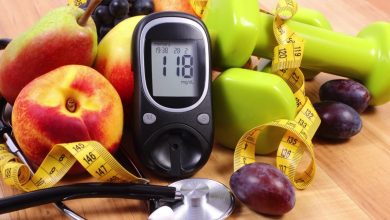Daily Coffee Habit Linked to Better Heart Health, Study Finds

For millions of people around the world, the day doesn’t truly start until that first cup of coffee. Beyond the ritual and the pick-me-up, new research is adding to a growing body of evidence that moderate, regular coffee drinking may be good for the heart — and that when you drink it might matter too. We’ll unpack recent findings, explore possible biological reasons, look at caveats (including brewing and additives), and translate the science into practical advice you can use at your kitchen counter.
What the new study found
A recent large study examining patterns of coffee consumption and health outcomes reported that people who drank coffee mainly in the morning had a lower risk of dying from cardiovascular disease and a lower overall risk of death during follow-up, compared both with non-coffee drinkers and with people who drank coffee all day long. The strongest associations were seen for moderate intake (roughly 1–3 cups per day), and benefits tended to plateau or weaken at higher amounts. These timing-specific results have grabbed attention because they suggest coffee’s effects may interact with circadian biology.
Another recent analysis of population data also found that habitual daily coffee consumption — when not heavily sweetened or loaded with cream — is associated with a lower risk of cardiovascular events and lower all-cause mortality in many cohorts, adding weight to the idea that coffee in everyday amounts is generally neutral to beneficial for heart health.
How strong is the evidence?
Most of the data so far are observational: researchers follow large groups of people, record their coffee habits, and track who later develops heart disease or dies. Observational studies can show associations but cannot prove cause and effect, because people who drink coffee regularly may differ from non-drinkers in other important ways (diet, exercise, smoking, socioeconomic factors). Good studies try to adjust for those differences, but some residual confounding often remains.
That said, the evidence is consistent across many cohorts and meta-analyses: moderate coffee drinking is repeatedly associated with modestly lower risks of coronary heart disease, stroke, and cardiovascular mortality. The reproducibility across different countries, age groups, and study designs strengthens the credibility of a real protective signal — even if the exact size of the benefit and the mechanisms remain under investigation.
Possible biological reasons coffee might help the heart
Researchers have proposed several mechanisms that could explain why moderate coffee intake correlates with better cardiovascular outcomes:
- Antioxidant and anti-inflammatory compounds: Coffee is rich in polyphenols and other bioactive compounds (e.g., chlorogenic acids) that can reduce oxidative stress and chronic inflammation, both key drivers of atherosclerosis. These compounds may improve endothelial function (the ability of blood vessels to dilate) and reduce the progression of plaque.
- Effects on metabolism and diabetes risk: Regular coffee consumption has been linked to a lower risk of type 2 diabetes in numerous studies. Since diabetes dramatically increases cardiovascular risk, an indirect protective effect through better metabolic health is plausible.
- Blood pressure and arterial function: While acute caffeine raises blood pressure in some people, habitual coffee consumers often develop tolerance to this effect; observational data show no consistent long-term increase in hypertension risk with moderate intake, and some analyses even report a slight reduction in hypertension risk. Improved vascular responsiveness and lowered inflammation may help explain long-term vascular benefits.
- Timing and circadian biology: Newer studies suggest timing may matter — coffee consumed in the morning appears to correlate with larger reductions in cardiovascular mortality than coffee consumed throughout the day. One hypothesis is that morning consumption aligns with circadian rhythms in metabolism and cardiovascular function, while frequent caffeine exposure late in the day could disrupt sleep and circadian regulation, negating benefits. More research is needed to test these ideas directly. How much coffee seems “safe” or beneficial?
Most studies find the sweet spot is moderate consumption — commonly defined as about 3–5 cups per day in older meta-analyses, or 1–3 cups per day in some of the more recent cohort analyses showing mortality benefits. Benefits often plateau after that range, and very high consumption (e.g., more than 5–6 cups daily) may be neutral or associated with other health risks for certain people. In short: more isn’t always better.
Remember that “a cup” in research is often defined as roughly 8 ounces (about 240 ml), and caffeine content varies widely by brew strength, bean, and serving size.
Does the type of coffee or the way it’s brewed matter?
Yes — brewing method and what you put in your cup matter for heart health.
- Unfiltered coffee and cholesterol-raising compounds: Certain unfiltered brewing methods (French press, boiled “Turkish”/Scandinavian coffee) allow diterpenes like cafestol and kahweol to pass into the drink; these compounds can raise LDL (“bad”) cholesterol in a dose-dependent way. Paper-filtered drip coffee removes most of those diterpenes, so filtered coffee is generally preferred for cardiovascular risk. A workplace study even found that coffee from some office machines — which often produce unfiltered brew — could negatively affect lipids compared with filtered home coffee.
- Black vs. loaded coffee: Adding large amounts of sugar, syrups, whipped cream or saturated-fat heavy creamers can turn a heart-friendly habit into a source of excess calories, sugar, and saturated fat — all of which worsen cardiovascular risk. Some of the protective associations with coffee appear strongest when consumption is of black or lightly sweetened coffee.
- Decaf vs. regular: Many beneficial compounds in coffee are not caffeine. Observational studies often find similar, though sometimes slightly weaker, associations for decaffeinated coffee, suggesting both caffeine and non-caffeine constituents contribute. Individuals sensitive to caffeine (e.g., insomnia, palpitations) can often choose decaf and still gain some benefit from the antioxidants.
Who should be cautious about coffee?
While moderate coffee intake is safe for most people, there are important exceptions and caveats:
- People with uncontrolled hypertension or certain heart rhythm disorders should discuss caffeine intake with their doctor, because acute caffeine can provoke palpitations or transiently raise blood pressure in some individuals. Recent reports on coffee and arrhythmia vary; clinicians often individualize advice for patients with symptomatic arrhythmias.
- Pregnant people should follow obstetric guidance on caffeine limits (many guidelines recommend limiting caffeine to 200 mg/day or less).
- People sensitive to caffeine (anxiety, insomnia, GERD) may need to limit or avoid caffeinated coffee and consider decaf options.
- Those with high LDL cholesterol who drink unfiltered coffee should consider switching to paper-filtered methods to reduce intake of cholesterol-raising diterpenes.
Practical takeaways — how to enjoy coffee sensibly for heart health
If you’re trying to optimize heart health while keeping your coffee habit, here are evidence-informed, practical tips:
- Aim for moderation. One to three cups per day shows consistent associations with benefit in many recent studies; up to about three to five cups appears safe for most healthy adults. Avoid very high daily intake unless advised otherwise by a clinician.
- Prefer morning consumption. Early research suggests that drinking coffee primarily in the morning may be more strongly associated with lower cardiovascular mortality than drinking it all day. Try having your main cup(s) before noon and avoid habitual late-day caffeine that might disturb sleep.
- Use paper-filtered brewing. Choose drip-brewed, pour-over, or other paper-filtered methods to reduce diterpene content (cafestol and kahweol) that can raise LDL cholesterol. If you love French press or boiled coffee, enjoy it but consider limiting frequency.
- Watch additives. Keep sugar, flavored syrups, and high-fat creamers to a minimum. A splash of milk or a small amount of sweetener is unlikely to erase benefits, but heavy additions can.
- Listen to your body. If coffee causes palpitations, jitteriness, anxiety, or insomnia, reduce the dose or switch to decaf. Discuss persistent symptoms with your healthcare provider.
What scientists still don’t know
While the epidemiological signal is clear enough to encourage moderate consumption for many, several open questions remain:
- Causality: Are the associations causal? Randomized controlled trials (RCTs) of long-term coffee consumption and hard cardiovascular endpoints are scarce; such trials are difficult to run but would help prove causation.
- Why timing matters: The morning-versus-all-day findings are provocative, but we need mechanistic studies and intervention trials to test whether timing itself causes differences in outcomes, or whether morning drinkers simply differ in other healthy habits.
- Population differences: Most large cohorts come from high-income countries; effects may differ by genetic background, diet, or typical brew styles across cultures.
- Interactions with medications: Coffee and caffeine can interact with certain medications; more clinical guidance would help specific patient groups.
Researchers are actively exploring these questions; for now, the totality of evidence suggests moderate, mostly morning coffee (particularly filtered and lightly dressed) is likely harmless for most people and may confer modest cardiovascular benefits.
Bottom line
If you enjoy coffee, the latest research is good news: a regular, moderate coffee habit — especially when consumed in the morning and prepared with paper filtration — is associated with modestly better cardiovascular outcomes in many large studies. That doesn’t mean coffee is a medical treatment, and heavy consumption or unhealthy coffee-drinking patterns (sweetened lattes five times a day, unfiltered brews in people with high cholesterol, or drinking late at night and losing sleep) may erase benefits or create new risks. As always, consider coffee as one part of an overall heart-healthy lifestyle: balanced diet, regular physical activity, good sleep, not smoking, and attention to blood pressure and cholesterol.




